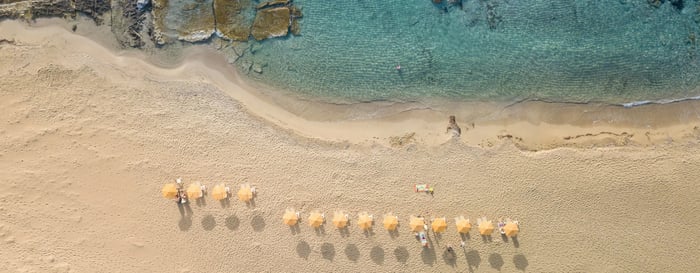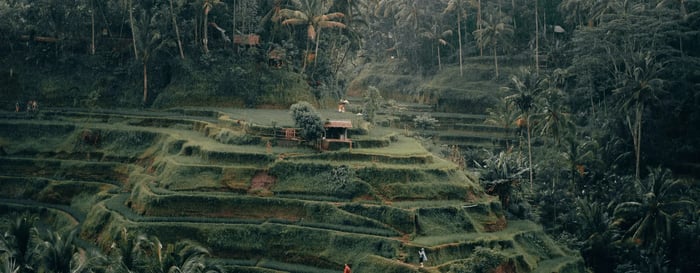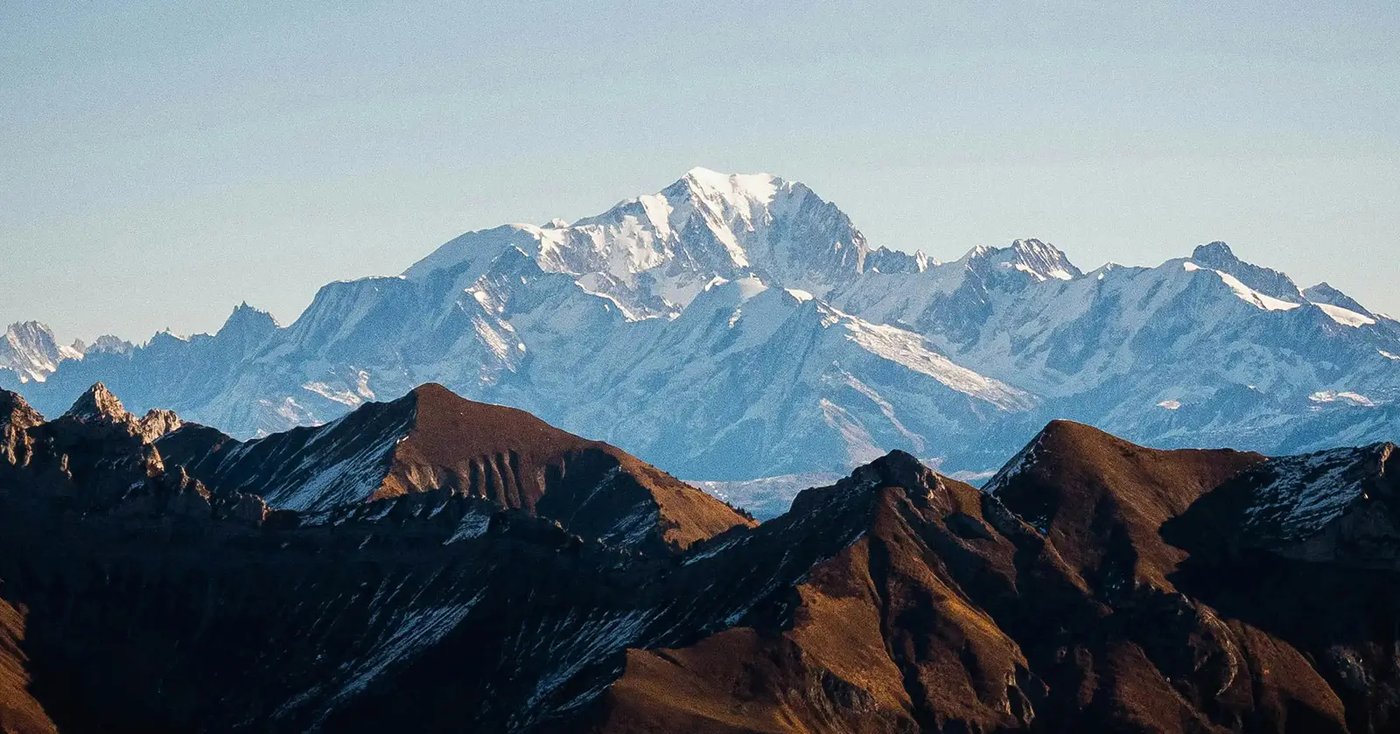Getting to the mountain village of Merak isn’t easy. After a two-and-a half-day drive, you still need to trek for half a day before you reach the picturesque Bhutanese village in the Himalayas. Tucked away in a country that has famously tried to reject outside influences, Melak seems to be a lifetime away from the rest of the world.
Men can be found herding yak and women hunkered over barrels of red dye creating the fabric for their traditional clothing. It’s a life that has remained the same for centuries, but the more observant might notice that times are also changing for this nomadic village. A mobile phone mast stands proud on the hillside; the introduction of electricity in 2012 also brought with it satellite TVs; and the padlocks that can be spotted hanging from the latches on the doors means that as modern goods have arrived, so have modern problems, such as how to hold onto those sought-after goods.
And now there’s a new road that’s about to change their lives even more. As the diggers claw their way ever closer through the mountainside, UK photographer AJ Heath chose to make the journey to the village of Merak to capture a way of life that will soon be gone forever. “It’s one of the most remote places I’ve ever been to,” says Heath. “I have photographed tribes in Ethiopia and Kenya, but I felt a lot more remote when I visited the Brokpa people. Being up in the mountains and surrounded by clouds, I really felt as if I’d stepped back in time.”

Heath had spent 11 months living in Bhutan doing consultancy work for the Department of Information and Media. As the country had changed from a closed Buddhist Kingdom into a constitutional democracy, Heath was interested in how modernisation was affecting the country, and in particular, the people who lived outside the city.
The Bhutanese had told him that if he wanted to see the proper Bhutan he needed to leave Paro, Thimphu and Punakha behind and travel to the East of the country. So Heath asked the Department of Information and Media if they could connect him to the Brokpa people in Merak where a new road was about to open. “Their lives have not really changed in centuries, but change is coming and the change will happen very quickly. I wanted to capture this before it is lost,” he explains.
The Brokpas are semi-nomadic who move between the highlands in the summer and the lowlands in the winter with their yaks. Wealth isn’t judged by money, but how many livestock each person owns. They use the barter system and will trade cheese, butter and dried yak meat for grains, oil, salt, sugar, and chillies. They need to trek for three hours before they reach the nearest town so that they can trade some of these goods. Heath would soon far out how remote the village really was when he had to drive along treacherous Himalayan mountain roads and then trek over mountain passes and into the valley with all of his equipment.


During his 10-day stay, Heath found a village on the cusp of change. While mobile phone masts and communal water pipes were dotted throughout the village, Heath would also see rails of yak meat drying in the sun, women sitting on their porches weaving traditional blankets and caravans of yak trundling into the village, laden with goods.
And villagers welcomed the photographer with open arms as he snapped them at work and rest. “I was offered countless cups of butter tea and Ara (a local home brew). Ara is super strong and tradition dictates guest are given at least a couple of glasses. It’s rude to turn it down, which was a slight problem as I was sometime offered it at 7am or 8am,” says Heath.
If Ara didn’t cause Heath issues, the altitude of 3,500m above sea level and the weather definitely would. “It was just before the monsoon season, so the weather was very unpredictable – it would rain for days at a time,” says Heath. “Sleeping at that altitude was also a problem for me, so at night I would wake up gasping for air.” Photographing the yak would also keep the Heath on his toes. “They can be aggressive and use their horns if you get too close.

However, even with these challenges, it’s pretty clear that Heath still managed to capture the spirit of the village. “I love the first landscape shot in the early morning with the yak herders and the smoke drifting into the mountain air, as it evokes my memories of being there,” says Heath. “I also love the portrait of the Brokpa man with the yak and the women dying the clothes on the open fire. I’m aware that it won’t be long before these sights are a thing of the past, they will start wearing more ‘modern’ western style clothes and these ancient practises will no longer used.”
Heath said that one sign that times were changing were that most of the herders had a mobile phone. “As the majority are illiterate, I was fascinated to know how they put people’s names into their phones. One lady showed me that she used the emojis – ‘dog, dog, cat, heart’ was her son who lives in Thimphu and ‘cat cat heart heart’ was for her daughter.”
While the tourists yearn for Bhutan to remain the same, Heath said that the Brokpa people welcomed the changes: “They all seemed very excited by the prospects of the new road being built. They thought it would improve their lives and that their living conditions would improve. The road would also bring in more tourists which will give them extra income to buys TVs and fridges.”
In an attempt to combat this loss of culture that globalisation inevitably brings, the government has drafted a heritage bill, which they hope will protect the traditions of isolated communities like the Brokpa people. Hopefully this will give them what they need and stop the unnecessary trappings of the modern world from knocking on their door. For they don’t need the latest Kardashian installments to boost their Gross National Happiness Index.

AJ Heath's book ‘In Pursuit of Happiness’ documents the effects globalisation has had on Bhutan. To discover more of Heath’s work visit www.ajheathphotography.com/
Beach, Food, & Art Summer Holiday
Greece Cyclades: Mykonos & Santorini Barcelona Madrid Spain Europe
- Explore Athens on a private guided tour, including a trip to the Acropolis
- Visit the sacred site of Delphi, home of the oracle of Apollo
- Enjoy beautiful beaches and fun activities in Mykonos
- Get a taste of Spain on a tapas tour of the Spanish capital, Madrid
- Discover the world of Gaudi in the avant-garde city of Barcelona
Classic Switzerland
Switzerland Lake Geneva Lucerne, Interlaken & the Swiss Alps Zurich
- Visit the beautiful cities of Geneva, Lucerne, and Zurich
- Learn about Swiss cheese production and chocolate making in a local factory
- Experience a breathtaking panorama view of Mount Gornergrat
- Hop on a helicopter scenic tour to admire Jungfraujoch – “Top of Europe” from above
Untouched Bali
-
Explore Bali’s vibrant and beautiful temples
-
Browse local markets and bathe in hot springs
-
Marvel at lush rice paddies in the Munduk Highlands
-
Discover Bali’s exotic flora, fauna and birdlife at the West Bali National Park
-
Savour freshly roasted coffee at the Luwak coffee plantation








